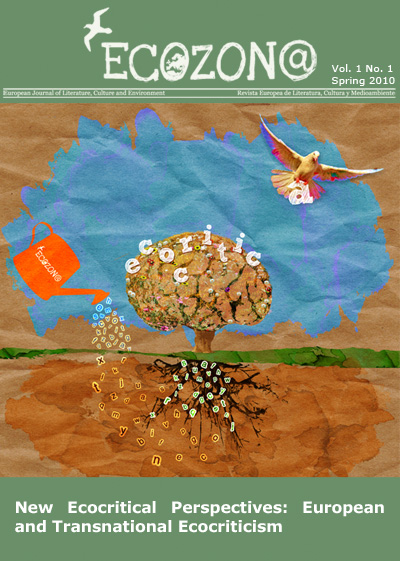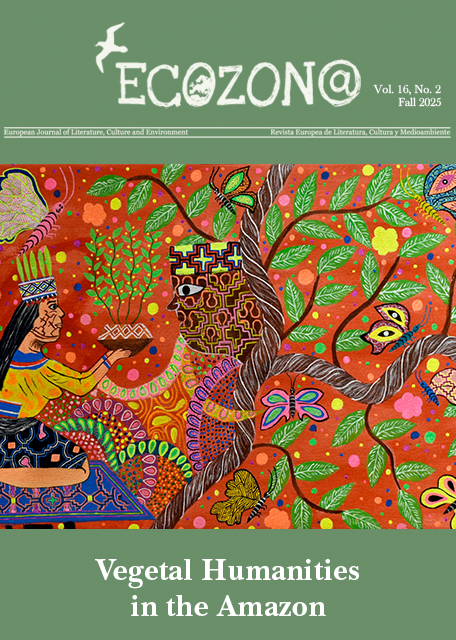Reading Ecophobia: a Manifesto
DOI:
https://doi.org/10.37536/ECOZONA.2010.1.1.323Schlagworte:
ecophobia, speciesism, ecocritical theory, ecocritical ethics, Andrew Battista, Lawrence BuellAbstract
Key words: ecophobia, speciesism, ecocritical theory, ecocritical ethics, Andrew Battista, Lawrence Buell
To a large extent, ecocriticism has not developed its own body of critical theory, largely so because many prominent ecocritics deliberately shy away from theoretical entanglements. Reading ecophobia is an attempt to theorize ecocriticism and reach a kind of methodological and structural definition of the field. Reading ecophobia consists of uncovering and seeing unassumed connections in our thinking and in our conceptual links that would recognize the interweaving of racism, misogyny, homophobia, speciesism and ecophobia. It would imply acknowledging biases in our analyses of cultural products and their representations of nature. Thus, it becomes a necessary step for the discipline.
Palabras clave: ecofobia, especiesismo, teoría ecocrítica, ética ecocrítica, Andrew Battista, Lawrence Buell
En gran medida la ecocrítica no ha desarrollado su propio cuerpo de teoría crítica, en parte debido a que muchos ecocríticos destacados rehúyen deliberadamente los enredos teóricos. Una lectura de la ecofobia constituye un intento de teorizar la ecocrítica y alcanzar una especie de definición metodológica y estructural del campo. Esta lectura consiste en revelar y ver conexiones no aparentes en nuestro pensamiento y en nuestros vínculos conceptuales, lo que reconocería la unión inextricable entre racismo, misoginia, homofobia, especiesismo y ecofobia. Esto implicaría reconocer los prejuicios en nuestros análisis de productos culturales y sus representaciones de la naturaleza. Por lo tanto, se convierte en un paso necesario para la disciplina.
Downloads
Downloads
Ausgabe
Rubrik
Lizenz
Authors who publish with this journal agree to the following terms:
a) Authors retain copyright and grant the journal right of first publication with the work simultaneously licensed under a Creative Commons Attribution License that allows others to share the work with an acknowledgement of the work's authorship and initial publication in this journal (CC BY-NC for articles and CC BY-NC-ND for creative work, unless author requests otherwise.
b) Authors are able to enter into separate, additional contractual arrangements for the non-exclusive distribution of the journal's published version of the work (e.g., post it to an institutional repository or publish it in a book), with an acknowledgement of its initial publication in this journal.
c) Authors are permitted and encouraged to post their work online (e.g., in institutional repositories or on their website) prior to and during the submission process, as it can lead to productive exchanges, as well as earlier and greater citation of published work (See The Effect of Open Access).










